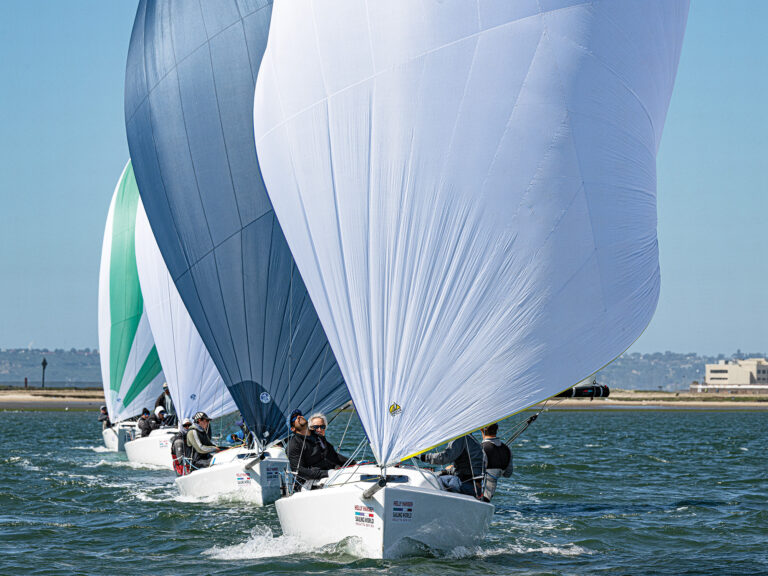“How much are you paying?” was the shocking question I received after inviting a prospective crewmember to race in an upcoming regatta. Has our sport degenerated to the point where it’s all about getting paid to sail? I suppose it’s no surprise that some sailors now feel entitled to a hefty paycheck for sailing. After all, America’s Cup sailors receive six-figure salaries for their services.When I first started sailing with Ted Turner nearly 30 years ago, I asked if he could cover the cost of my plane ticket to Florida for the SORC. At the time I was earning $12,000 a year as a sailing coach at Kings Point. Turner said he could afford it, but that as a rule, all of his crew found a way to get to regattas on their own. If I wanted to sail with him, I’d have to pay my way. Turner’s philosophy was that sailors appreciated being on the boat more if they had invested in getting there. And it may well have helped our performance.A growing culture of demanding pay and expecting every expense to be covered has taken root in some areas of racing. It’s pushing many owners away from big-boat sailing: While there are larger economic factors, it’s one reason that very few big boats are being built or even campaigned. If owners and crew agree on a healthier formula of who should pay for what, this could be different.I’ll give you some examples of what I’ve heard from owners recently. One Long Island Sound owner of a 40-footer was disappointed to learn that several of his crew went out for an expensive dinner after a regatta. It wasn’t a crew dinner or a function at the yacht club. The group (not the entire crew) rolled up a big tab and then sent him the bill expecting payment, even though he had no knowledge of the dinner. Another owner told me that he was quitting sailing because he was tired of his crew sending in expenses that included mileage for driving to regattas and receipts for McDonalds.In a recent interview with Olin Stephens, I asked him, based on his experience with J-boats, 12-Meters, and modern America’s Cup boats, which crews were the best? His response was: “The 12-Meter crews!” Why? I asked. “Because they sailed for passion. Their priority was winning.” I pressed further. What about today’s professional Cup sailor? “All they think about is money,” Stephens said.Should sailing be about money or having fun? For nearly everyone, the answer is clear, and in my view it would be more fun for owners if crews shared some of the cost. Sailing has long been called a rich man’s sport. In fact, there’s usually only one rich guy and then there’s everyone else sailing on his boat. Many owners write endless checks because they believe it’s the only way to recruit a crew. Wrong. There are always people willing to race. Given a few regattas, the skill level of the enthusiastic amateur sailor will often match that of the more demanding semi-professional, and the tone on the boat will almost always be better.What’s needed is a clearly defined balance of who should pay for what. I know that a few boat owners successfully use such a formula. When they find crew who balk at their guidelines, they move on to other sailors who fit their team better. If more boat owners operated this way, the whole sport would be better off, and we’d again see growth in big-boat sailing.Owners should set the standard with a letter to prospective crew at the beginning of the season. Among other things, it should include the racing schedule and clear expectations of who’s responsible for which expenses. Although the owner will inevitably pick up the lion’s share of the expenses, the dynamic shifts significantly when the crew participates to an extent in paying expenses. It builds a sense of respect for the owner and makes crewmembers feel better that they are sharing some of the load. On this basis many more sailors will be willing to play the game as raceboat owners. It’s time to reverse the trend toward crewmembers with a growing sense of entitlement; instead of thinking “What can I get out of this program?” sailors should be asking, “How can I help?”









